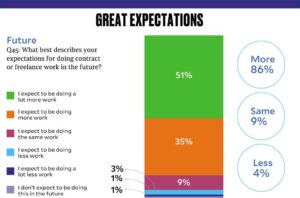The Philippines may end up jumping “from the frying pan to the fire” if it embraces federalism, as such a form of government only tends to worsen poverty and widen income inequality in developing countries, warned economists from the University of the Philippines.
“The pro-federalism position claims that federalism will cause poverty to fall and the distribution of income to be more equal. Our regression results bear neither of these claims. On the contrary, federalism strongly predicts greater income inequality in developing countries,” said the Sept. 12 paper authored by UP economists Raul Fabella and Sarah Lynne Daway-Ducanes.
“Our results also show that federalism does not predict reduced poverty incidence and severity on average; it does not reduce poverty incidence and may increase poverty severity in developing economies,” it added.
The paper used data from 105 economies going back three decades and entered federalism as a variable in its analysis.
UP professor emeritus Fabella, former dean of the UP School of Economics, is part of the country’s intellectual elite. He was conferred the title of “National Scientist of the Philippines” in 2011.
While it is true that cross-country results may not apply to a particular individual country in the sample since the results pertain to the average, the economists noted that the country in question was exceptional.
“Case in point: the successful miracle economies in East Asia come under the rubric of East Asian exceptionalism. But, as is widely recognized, the Philippines is the exception to the East Asian exceptionalism. It is East Asian only in geography but not in performance, especially in the last 30 years,” the research said.
The research sought to shed light on this critical black hole in the conversation: whether federalism accords a developing economy a better chance of improvement in generally accepted indices of economic welfare like poverty reduction and income inequality as argued by proponents.
“A nation cannot embark on a massive regime shift based only on unsupported claims and counterclaims. Are we jumping from the frying pan to the fire or to some healing still waters?” the economists pointed out.
As federalism involves additional powers to local elected government and additional layers of bureaucracy that may increase or reduce accountability, the research pointed out that where institutions are weak, most people believe that the additional layers of bureaucracy from federalism may erode accountability and become straps for corruption.
The economists cited previous studies showing that in Nigeria and Sudan, two of the four federalist states in the African continent, these countries have been unable to implement sustainable significant solutions to extreme poverty, adding that the two federal countries were ineffective in the management of the national economy.
Even in the United States itself, the economists noted that federalism had “yet to prove itself on the question of inclusion, it being the one perhaps the single most important goal for decentralization.”
A previous comparative study of European countries also showed that overall political decentralization in Europe did not predict well overall income inequality. Instead, countries with higher fiscal autonomy among its regions are associated with higher net income inequality, the economists said.


